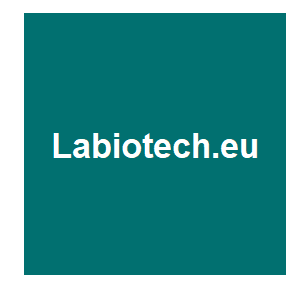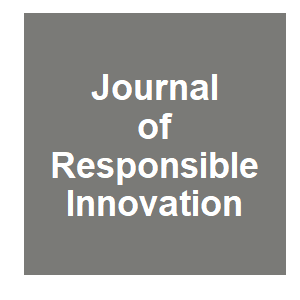
Keywords: public health

|
Gene Drive Technology Unlocks Innovative Potential Solutions At The Intersection Of Climate Change And Public HealthKrystal Birungi, African Media Agency, 2023.
The inaugural ‘Day of Health’ at the UN Climate Conference (COP-28) highlighted the dramatic impact of climate change on health, diseases and in particular on malaria. Heads of State and climate experts converged in Dubai to emphasise the indisputable link between climate ... Keywords: agriculture, genetic biocontrol, genetically modified, mosquito, policy, public health, regulations, risk |

|
Imperial startup Biocentis to develop genetic tech to control harmful insectsD. Silverman, Imperial College London, 2023.
The Imperial startup was founded in 2022 by Imperial researchers in partnership with technology-focused investment group Neurone to create a more effective and sustainable alternative to pesticides. While insects play an essential role in the global ecosystem, among the ... Keywords: agriculture, genetic biocontrol, genetically modified, mosquito, policy, public health, regulations, risk |

|
Interdisciplinary development of a standardized introduction to gene drives for lay audiencesC. E. Schairer, C. Triplett, A. Buchman, O. S. Akbari and C. S. Bloss, BMC Medical Research Methodology, 20:15. 2020.
While there is wide consensus that the public should be consulted about emerging technology early in development, it is difficult to elicit public opinion about innovations unfamiliar to lay audiences. We sought public input on a program of research on genetic engineering to ... Keywords: agriculture, genetic biocontrol, genetically modified, mosquito, policy, public health, regulations, risk |

|
The Evolving Arsenal Against Mosquito-Born DiseasesJ. Smith, Labiotech.eu, 2020.
As the global climate continues to warm, disease-spreading mosquitoes such as Aedes aegypti are expected to establish themselves in the US and Europe. Keywords: agriculture, genetic biocontrol, genetically modified, mosquito, policy, public health, regulations, risk |

|
Teach Me in 10 – Gene Drive Research with Dr. Jennifer BaltzegarJ. Baltzegar, Technology Networks, 2020.
Dr Baltzegar teaches us about how the maturation of genetic engineering approaches has advanced gene drives, the two different strategies for gene drives and some of the key questions surrounding the application of gene drives in society. Keywords: agriculture, genetic biocontrol, genetically modified, mosquito, policy, public health, regulations, risk |

|
Prospects and Pitfalls: Next-Generation Tools to Control Mosquito-Transmitted DiseaseE. P. Caragata, S. Dong, Y. Dong, M. L. Simões, C. V. Tikhe and G. Dimopoulos, Annual Review of Microbiology, 74:455-475. 2020.
A diverse array of next-generation tools has been designed to eliminate mosquito populations or to replace them with mosquitoes that are less capable of transmitting key pathogens. Keywords: agriculture, genetic biocontrol, genetically modified, mosquito, policy, public health, regulations, risk |

|
Viewpoint: Is there a scientific basis to ban gene drive technology that can rid us of virus-carrying rodents and mosquitoes?K. Vavitas, Genetic Literacy Project, 2020.
Gene drives may be invaluable tools to control the spread of parasites, invasive species, and disease carriers. But the technology has faced strong opposition from activist groups and some mainstream scientists based on environmental and food safety. Are these concerns valid? Keywords: agriculture, genetic biocontrol, genetically modified, mosquito, policy, public health, regulations, risk |

|
Le forçage génétique (gène drive) et ses applicationsV. Courtier-Orgogozo, Bulletin de l'Académie Vétérinaire de France, 172:94-98. 2020.
Gene drive is a new genetic engineering technology that has been developed over the past five years and that allows genetic modifications to spread rapidly in natural populations. Potential applications are numerous, for public health issues, agriculture and conservation biology. ... Keywords: agriculture, genetic biocontrol, genetically modified, mosquito, policy, public health, regulations, risk |

|
SummaryCommittee on Gene Drive Research in Non-Human Organisms: Recommendations for Responsible, Journal of Responsible Innovation, 5:S243-S254. 2018.
Scientists have studied gene drives for more than 50 years. The development of a powerful genome editing tool in 2012, CRISPR/Cas9,1 led to recent breakthroughs in gene drive research that built on that half century’s worth of knowledge, and stimulated new discussion of the ... Keywords: agriculture, genetic biocontrol, genetically modified, mosquito, policy, public health, regulations, risk |

|
Science and Technology Committee Genetically Modified InsectsUK Parliament, UK Parliament, 2015.
The UK is a world leader in the development of this technology. The European Union’s regulatory process, however, is likely to hold back progress. There is a moral duty to test the potential of the technology. We therefore support further research and call for action to test ... Keywords: agriculture, genetic biocontrol, genetically modified, mosquito, policy, public health, regulations, risk |

|
Ethical issues in field trials of genetically modified disease-resistant mosquitoesD. B. Resnik, Developing World Bioethics, 14:37-46. 2012.
Mosquito-borne diseases take a tremendous toll on human populations, especially in developing nations. In the last decade, scientists have developed mosquitoes that have been genetically modified to prevent transmission of mosquito-borne diseases, and field trials have been ... Keywords: agriculture, genetic biocontrol, genetically modified, mosquito, policy, public health, regulations, risk |

Contact
David O’Brochta
Foundation for the
National Institutes of Health
geneconvenevi@fnih.org
RSS

